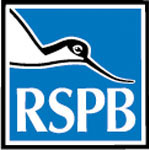 |
Penguins in PerilThe RSPB released a media statement on 15th January 2009 relating to alarming research on Northern Rockhopper Penguins. A related article was also published in The Times on 15th January which can be read by following this link: (and see also our own Penguin Page) We publish the full RSPB media release below : |
|
Rockhopper Penguin walking an increasingly rocky road Eleven of the world's 18 species of penguin are facing extinction. A new study has revealed that the northern rockhopper penguin – which is principally found on UK territories in the South Atlantic – has declined alarmingly.
Historical records estimate millions of penguins used to occur on Tristan da Cunha and Gough Island. But, declines of more than 90 per cent have dramatically reduced their numbers in the last 50 years.
The RSPB's Dr Richard Cuthbert is one of the authors of a paper published in the journal Bird Conservation International [Thursday 15 January, 2009]. Commenting on the declines, he said: "Historically, we know penguins were exploited by people, and that wild dogs and pigs probably had an impact on their numbers. However, these factors cannot explain the staggering declines in the 20th century when we have lost upwards of a million birds from Gough and Tristan. The declines at Gough since the 1950s are equivalent to losing 100 birds every day for the last 50 years"
Recent work on rockhopper penguins has shown there are two species. The southern rockhopper penguin occurs on the Falkland Islands, South America, South Africa, Australia and New Zealand. More than 80 per cent of the northern rockhopper penguin occurs on the Tristan da Cunha islands - including Gough Island - which are UK Overseas Territories. The remainder occur on St Paul Island and Amsterdam Island – territories of France in the Indian Ocean.
Richard Cuthbert added: "With more than half the world's penguins facing varying degrees of extinction, it is imperative that we establish the exact reason why the northern rockhopper penguin is sliding towards oblivion. Understanding what's driving the decline of this bird will help us understand more about other threatened species in the Southern Ocean."
Possible factors for the decline of the northern rockhopper penguin include: climate change; shifts in marine ecosystems; and over-fishing.
Regular counts and protection of rockhopper penguins at Tristan da Cunha is the responsibility of Tristan's Agriculture and Natural Resources Department. Tristan Conservation Officer Trevor Glass said: "Rockies are one of Tristan's most charismatic birds and a bird we are used to seeing in good numbers on all the islands. These unexplained declines are really worrying and we'll do everything we can to understand what is going on and to protect Tristan's penguins."
Dr Geoff Hilton is an RSPB conservation biologist who has studied the declines of rockhopper penguins. He said: "Both species of rockhopper penguin have declined across their ranges for several decades: millions of pairs have disappeared. We really don't understand the causes, but we suspect that a major change is taking place in the marine ecosystem.
"Although thought of as remote, there has been a huge man-made impact on the Southern Ocean. Less productive warmer seas, linked to climate change, may be reducing food availability. We almost wiped out fur seals, which have since recovered to very high numbers, then we decimated the great whales. This messing around with the food chain is likely to have impacts on other predators - like penguins - through unpredictable domino effects."
The northern rockhopper penguin is one of four species of penguin listed as Endangered, meaning they face a very high chance of extinction. The others species are: the erect-crested penguin and yellow-eyed penguin, of New Zealand; and the Galapagos penguin.
Rockhopper penguins get their name from the way they hop around rocks to get to their nests.
Recent support for a research rigid inflatable boat (RIB) to undertake counts and new studies to understand the problems rockhopper penguins face on Tristan has come from the Royal Zoological Society of Scotland and the Overseas Territories Environment Programme, respectively. |
||
